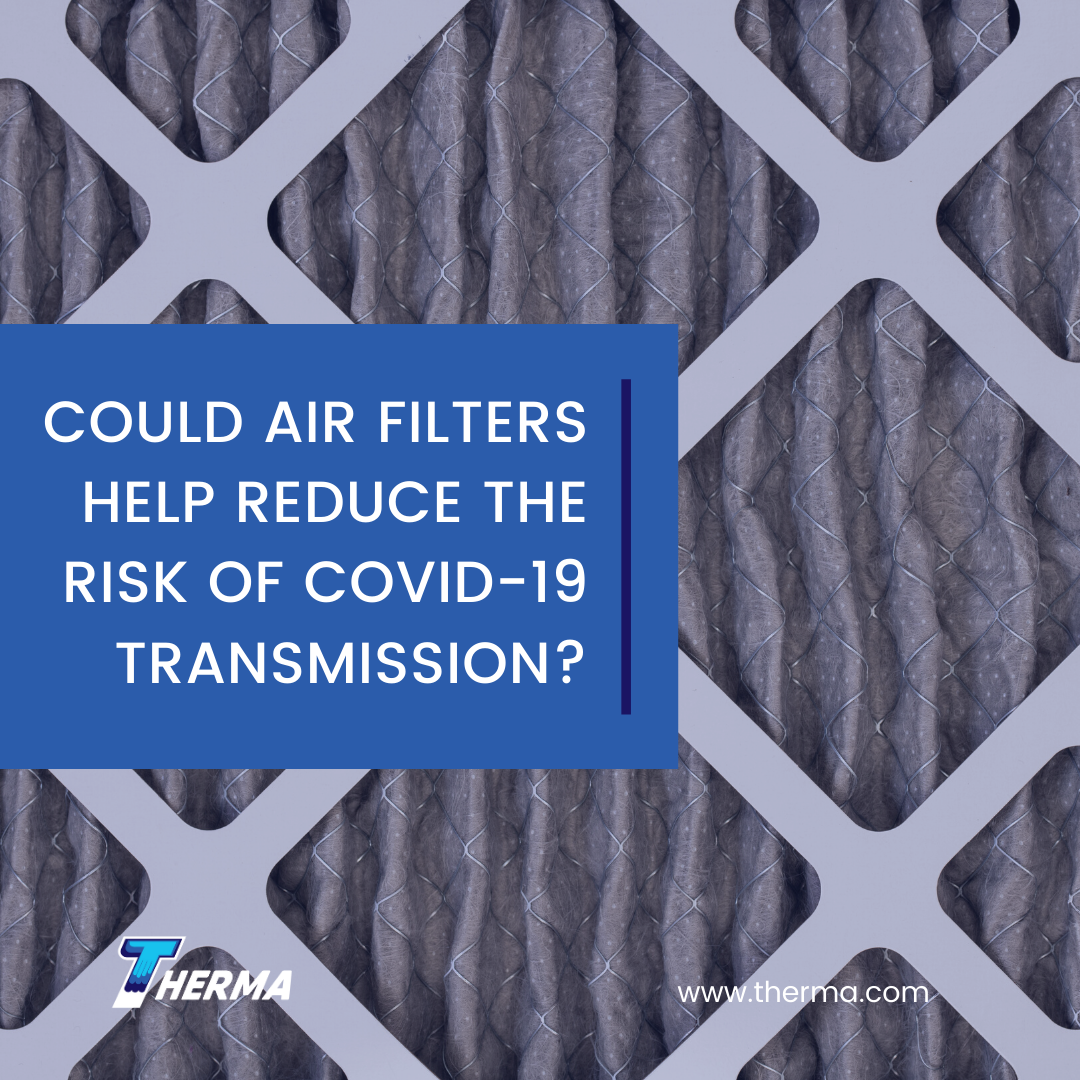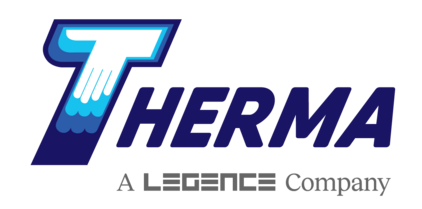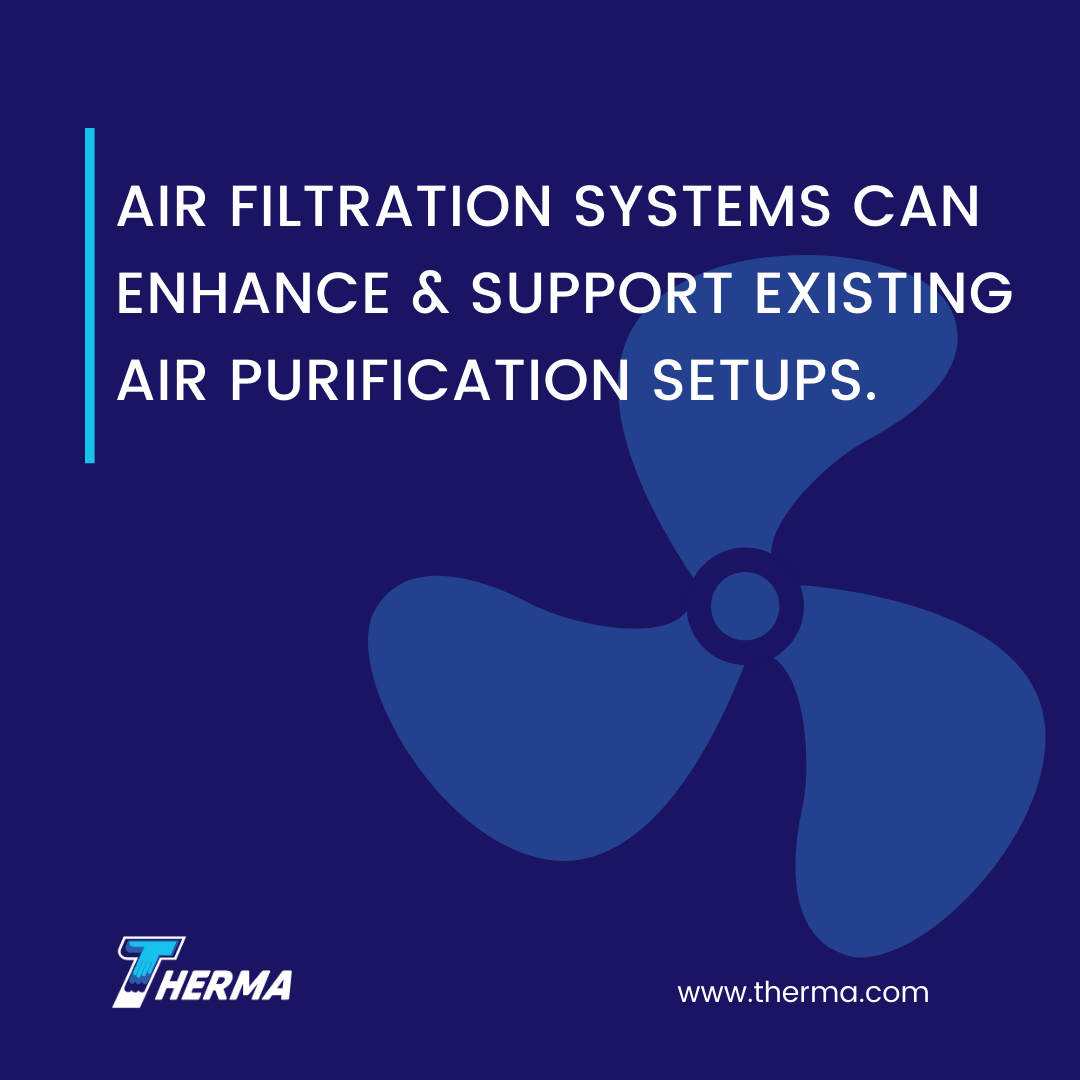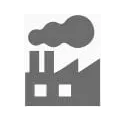We know that the COVID-19 virus can be transmitted through airborne droplets. These droplets can be inhaled when you take a breath. They can also stick to surfaces and are then picked up and transferred to your eyes, nose, or mouth through touch or contact. Because the virus is airborne, could air filters help reduce transmission risk?
 How Air Filters Work
How Air Filters Work
Air filters remove particulates from the air by capturing them in a fine bed of randomly positioned fibers. The most effective air filters are known as High-Efficiency Particulate Air (HEPA) filters and of these, the most advanced is effective down to 0.3 microns.
The novel coronavirus is as small as 0.125 microns, but when these particles are trapped in a droplet, the size is around 1 micron – easily caught by HEPA filters. Droplets larger than 1 micron rarely stay airborne for long; they fall to the floor or are trapped on surfaces, which can be routinely disinfected, reducing or eliminating the risk of transference.
Types of Air Filters
There are several different ways to position air filters in a room or building. They can be placed in the HVAC system as part of the building design, integrated into an existing HVAC system, or used as components of air purifiers that can be stationary or portable.
When it comes to reducing COVID-19 risk, however, it isn’t solely about the presence of filters or air cleaners. Instead, how airflow is directed – and whether all of the air in a given space is being put through the filter, required careful consideration.
High-efficiency air filters
High-efficiency air filters are typically installed in HVAC systems to trap particles in the air that are being sucked into the system. High-end HEPA filters can successfully remove 99.97% of airborne particles, including virus particles.
The main complication of adding HEPA filters to existing HVAC systems is, ironically, because of their efficiency. They collect so many small particles that they require regular maintenance and replacement. Additionally, HEPA filters can also cause changes in air pressure, depending on your particular HVAC setup.
Electronic air filters
Electronic air filters can use a variety of methods to help remove particles from air or render pollutants incapable of causing harm.
Some HEPA filters can be installed in portable units, but to be effective, they must be appropriately sized for the room and airflow must be designed to ensure all air in the room passes through the filter regularly.
Air scrubbers and ionizers
Some electronic air filters are called air scrubbers and use PCO UV lights: ultraviolet lights are shone inside a titanium-coated system to help clean the air. Other electronic air cleaners are called ionizers and work by encouraging the particles to attach themselves to a filter substance.
Ozone
A by-product of both air scrubbers and ionizers is ozone, which can also be an air cleaner. However, the amounts of ozone required to be effective are themselves considered a pollutant.
Efficacy of Air Filtration Against COVID-19 Transmission
While changing to a new air filter or installing a new air purification system can’t eliminate all dangerous particles from residential or commercial spaces, they can help to improve indoor air quality (IAQ). (If your system can accommodate passing all of the air in the room through the filter at a high enough turnover rate, pathogens can be eliminated.)
It’s important to remember that infection control guidelines aren’t typically capable of being met in non-healthcare spaces – unless specifically designed to do so.
We all know that the best way to protect yourself and your colleagues against COVID-19 is to
- Wear a mask
- Wash your hands
- Practice social distancing
- Clean and disinfect surfaces as frequently as possible
However, when added to existing precautionary measures in areas already set up to manage airflow and clean air, such as a medical office or a healthcare facility, air filtration systems can enhance and support existing air purification setups.
Whether you’re planning a build – or actively building – Therma’s HVAC and airflow specialists can provide valuable insight and information on high-level air filtration and recycling during the COVID-19 pandemic.








